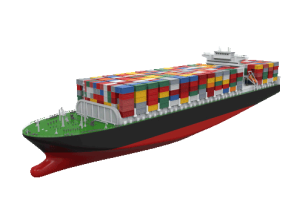U.S. customs requirements are complex and often changing. As importer of record U.S. Food Imports is responsible for complying with these requirements and applicable USDA and FDA regulations. We know that time is precious when it comes to the entry of food products into the U.S. Every minute that food is delayed at the border means a loss in value. With the razor thin profit margins in the food industry, quick and proper entry of goods is essential. Our experience and knowledge of food safety and labeling requirements gives U.S. Food Imports the advantage in getting food across the border and into the marketplace. We take the burden of complying with the complex food import requirements so you don’t have to.
Import of Record Services
We are responsible for:
-
Tariff Classification of Goods
-
FDA Prior Notice Filing
-
Valuation of Goods
-
Entry Services
-
Country of Origin Determinations and Marking of Goods
-
Utilization of Free Trade Agreements
Tariff Classification of Goods
Proper classification of goods imported or offered for import is critical for ensuring efficient flow of goods through the border. The importer of record is responsible for using reasonable care in classifying merchandise so that U.S. Customs and Border Protection can properly assess duties, collect accurate statistics and determine whether other applicable legal requirements associated with the goods are met. Failure to properly classify goods can lead to delays at the border and penalties, as well as overpayment of duties in certain cases. U.S. Food Imports is responsible for navigating the complexities of the Harmonized Tariff Schedule to properly classify goods and making certain correct duties are paid.

FDA Prior Notice Filings
Notice of food imported for use, storage or distribution in the U.S. is required to be communicated to the U.S. Food and Drug Administration before arrival in a port of entry with limited exceptions. Prior notice must be submitted electronically to FDA in English through the U.S. Customs and Border Protection Automated Broker Interface (ABI) or the FDA Prior Notice System Interface.
Prior Notice must be submitted with FDA for foods:
- Arriving by land by road, no less than 2 hours before arriving at the port of arrival
- Arriving by land by rail, or by air, no less than 4 hours before arriving at the port of arrival
- Arriving by water, no less than 8 hours before arriving at the port of arrival
- A separate timetable applies for food arriving by international mail
Violations of the Prior Notice requirement can lead to refusal of admission, and federal civil and criminal penalties. U.S. Food Imports ensures Prior Notice is filed correctly with FDA.

Valuation of Goods
Proper valuation of goods is essential in the entry process. Under federal law, the importer of record shall use reasonable care in determining the valuation of goods. U.S. Food Imports is responsible for properly valuing goods. Improper valuation can lead to inaccurate assessment of duties and penalties imposed by U.S. Customs and Border Protection.

Country of Origin Determinations and Marking
The country of origin of a good as declared to U.S. Customs and Border Protection determines whether such good may be admitted into the U.S., the rate of duty, eligibility for trade preference programs and free trade agreements, antidumping and government procurement. Goods that are not correctly marked with country of origin are subject to delays at entry and if already released by U.S. Customs and Border Protection, are subject to redelivery to Customs’ custody. Failure to redeliver goods may result in the assessment of liquidated damages in amount of the value of the goods. In addition, improperly marked goods may be subject to additional duties of 10 percent of the value of the goods. As importer of record, U.S. Food Imports is responsible for ensuring accurate country of origin determinations and proper marking of goods.

Free Trade Agreements
The U.S. has free trade agreements in force with 20 countries including Mexico, Canada, Guatemala, Australia, Peru, Oman, Bahrain, Singapore, Jordan and Israel. The rules governing the application of these free trade agreements are complex. U.S. Food Imports works to maximize utilization of free trade agreements to limit duty obligations.

